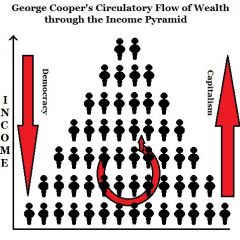Peace in Ukraine is now possible. The alternative is unthinkable. It could even mean a nuclear war, not started from the Russian side, but from the Ukrainian side who are urged on by the West to resist the Russian occupation.

Current status of the war
Russia have been pushed to the south-east side of the Dneipir River and out of the cities of Kharkiv and Kherson. Russia does not yet enjoy undisputed control in the former capitals of the Donetsk Oblast and of the Lunhask Oblast. Russia has held Crimea since 2014 and continues to do so.
It is unlikely that peace can be established on the basis of these positions.
Since 2014, Ukraine has been in conflict. Who wants this to continue? Apparently some do!
What is the dispute?
Ukraine’s position has been to maintain the right to reclaim Crimea. It is unclear under what rule of natural justice this can be maintained. The idea of maintaining national borders unchanged has no natural justice attached to it. Nevertheless, this is the entirety of the claim that Russia should give back Crimea to the Ukraine. One has only to look at the unsatisfactory position of the Kurds in Turkiye, Syria, Iraq and Iran to conclude that this is unjust. Other nations have endured border adjustments that they have not liked, but the will of the populations involved should be taken into account, not just settled international borders.
In addition, it is the clear intention of the current Ukrainian leadership to bring about the death of Russian culture in the disputed territories. Apparently, a law “On education” retains the right of schooling in the languages other than Ukrainian only for the ethnic groups which have no national states of their own. This does not mean that Russian is not taught in Ukrainian schools, but it cannot be the language in which instruction is given.
A possible peace treaty
Possibly, a tolerable peace treat in Ukraine could be established by an internationally sanctioned series of referendums to be held in each reasonably manageable region in the disputed regions. However, these referendums are unlikely to see a clear-cut result. In each region, even those that are Russian-speaking, the outcome is likely to be 50-50. It will still leave those who want to retain their Russian heritage unable to have their children educated in Russian.
If the Ukrainian leadership want to hold onto the Donbas region, they must reverse its anti-Russian education policy. Properly handled, education in Russian will die out of its own accord. This is because the higher paid jobs will require fluency in Ukrainian, not in Russian. Even Russian-speaking parents will want their children educated in Ukrainian, since that will give them better prospects in the future. It is up to the Ukrainian leadership to manage this process in a friendly manner.
As far as Crimea is concerned, Ukrainian leadership and the West must give up their ambitions to humiliate Russia by taking back this land. Without that concession, there will no peace.
War reparations
To the victor goes the spoils -and the responsibility. The end of the second World War set the pattern for reparations. It is the responsibility of the victor to repair the damage of each war. Those who have encouraged the Ukrainians to fight with an enemy whose military might was superior to their own must carry the responsibility for the repair of Ukraine’s infrastructure. As an act of good faith, Russia could make a contribution to the repair of the Ukrainian infrastructure, provided Ukraine is prepared to accept such an offer in good faith.
Consequences of no peace
Neither side can afford to lose this war. It is likely to escalate beyond reasonable management. I would not want to be responsible for such an outcome. Would you?
